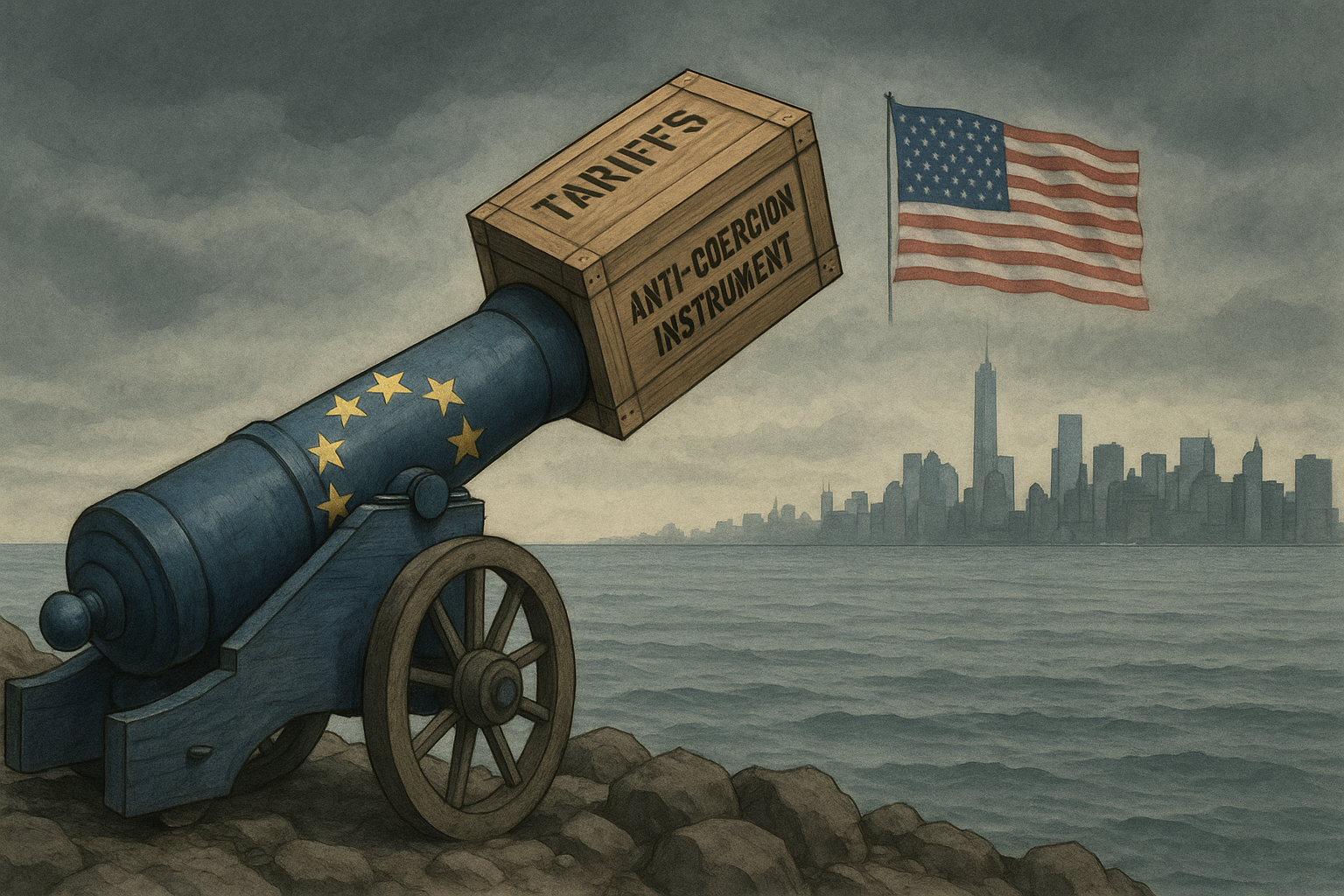The economic Cold War between longtime allies is heating up—fast. With barely two weeks left before Washington might slap a crushing 30% tariff across a range of European exports, Brussels isn't just sitting around nervously twiddling its thumbs.
They're loading their economic weapons.
I've been tracking EU-US trade tensions since the Obama administration, and something feels different this time. The rhetoric is sharper. The stakes higher. The willingness to inflict mutual damage... troublingly real.
Sources in Brussels confirm the European Union is readying its relatively new Anti-Coercion Instrument—a fancy bureaucratic name for what amounts to an economic counterpunch mechanism. Think of it as the diplomatic equivalent of "mess around and find out."
"We didn't design this tool specifically for the Americans," one EU official told me yesterday, speaking on condition of anonymity. "But we're certainly prepared to use it if necessary. Even against friends."
Friends? With these kinds of friends, who needs strategic competitors?
The EU's potential hit list reads like a precisely calculated political pain generator: punitive taxes aimed at American tech giants (Mark Zuckerberg might want to pay attention), investment restrictions in key European sectors, and—because some traditions never die—tariffs on politically sensitive U.S. exports like Boeing aircraft and Kentucky bourbon.
Nothing says "we're serious about this dispute" quite like making American whiskey unaffordable in Europe.
Look, trade tiffs between Washington and Brussels are nothing new. Remember the banana wars of the 1990s? Or the endless Boeing-Airbus subsidy battle? But those skirmishes seem almost quaint compared to what's brewing now.
The particularly maddening aspect of this whole situation is the timing. As democratic market economies face mounting challenges from authoritarian competitors, you'd think Western allies might find ways to work together rather than preparing to kneecap each other economically.
Instead, we're watching what I call the "Escalator of Economic Pain" in action. Each side keeps stepping up a level, convinced the other will blink first, until suddenly—wait, is that the top floor approaching?
The wider context matters here. Both the US and EU are frantically trying to rebuild manufacturing bases, accelerate green transitions, and position themselves for technological competition with China. Noble goals! But they're pursuing them in ways that create friction rather than synergy.
I spoke with several trade experts last week who all made variations of the same point: a 30% across-the-board tariff isn't subtle policy calibration—it's an economic sledgehammer that will shatter businesses caught in the crossfire.
"The ripple effects would hit everything from supply chains to consumer prices," explained Dr. Maria Hernandez at the Atlantic Trade Institute. She paused, then added with a grimace, "And honestly? At the worst possible time for the global economy."
The historical pattern with these disputes suggests some eleventh-hour resolution will materialize. There's typically a face-saving compromise that allows both sides to claim victory while backing away from the economic cliff.
But will that pattern hold this time?
I'm not so sure. The positions have hardened considerably. Political considerations—especially in an American election year—are drowning out economic sense. And the EU, tired of what it perceives as bullying, seems more willing than ever to show its teeth.
For businesses caught in this high-stakes poker game, the prudent approach is preparing for significant disruption while hoping cooler heads somehow prevail.
Because when economic policy becomes a tool for political posturing... well, markets tend to suffer.
And suffering markets? Those don't recognize borders or respect alliance structures. They just bleed.
